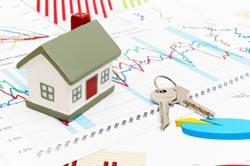Historical trends suggest that the South African property sector experiences a property boom approximately every 10 years with significant construction booms occurring every 20 years.

With interest rates largely expected to remain constant in 2013 and most of 2014, the performance of the South African property sector will increasingly be driven by economic growth prospects, the strength of household balance sheets and fundamentals in the property market.
The South African property cycle peaked in the early 1980s and the property market continues to feel the aftermath of the latest investment and construction boom of 2001 to 2007.
Although the next peak in the South African property market is at least another five years away, investors should see a steady improvement in market conditions during 2013 and 2014.
In the commercial property market this will be reflected in a gradual lowering of vacancies and a rise in real rentals.
Yet the timing and shape of the next upward cycle will be dictated by the performance of the macro economy, interest rate movements and the sector’s ability to maintain a balance between demand and development activity.
Over the past five years, the South African property market experienced spurts of positive performance, which mirrored periods of declining interest rates.
The lowering of interest rates since 2010 assisted in maintaining levels of affordability in the housing market and also increased investor appetite in the listed property sector.
With interest rates largely expected to remain constant in 2013 and most of 2014, the performance of the South African property sector will increasingly be driven by economic growth prospects, the strength of household balance sheets and fundamentals in the property market.

In 2013 residential property values are expected to increase by some 5 and 6 percent and will therefore show little real growth.
But continued poor performance of the Euro Zone economy and revised downward forecasts for the Chinese economy has dampened South African growth prospects.
Strong consumption expenditure, which provided an important catalyst for the retail sector of the commercial property market, is starting to wane.
In 2013 residential property values are expected to increase by some 5 and 6 percent and will therefore show little real growth.
Investors in the commercial property market will primarily be focused on maintaining returns through a reduction of vacancy rates and operating cost escalations.
In Q3 2012 average vacancy rates for “A” grade office properties in Braamfontein reached a 10-year high of 19.9 percent.
In the Claremont office node A grade office vacancy rates increased from 8.3 percent in Q3 2008 to 17.7 percent in Q3 20112.
It is unlikely that rental increases in the office sector will rise in real terms until office vacancies decline to below the 8 percent mark.
Although the South African property market will be operating in an uncertain macroeconomic environment in 2013, the slowdown in building activity in both the residential and commercial sector will result in a gradual mopping up of supply as the year progresses.
Investors should also start to experience a market that is gradually moving up the property cycle, with the peak of the cycle still some distance away. - Professor Francois Viruly









